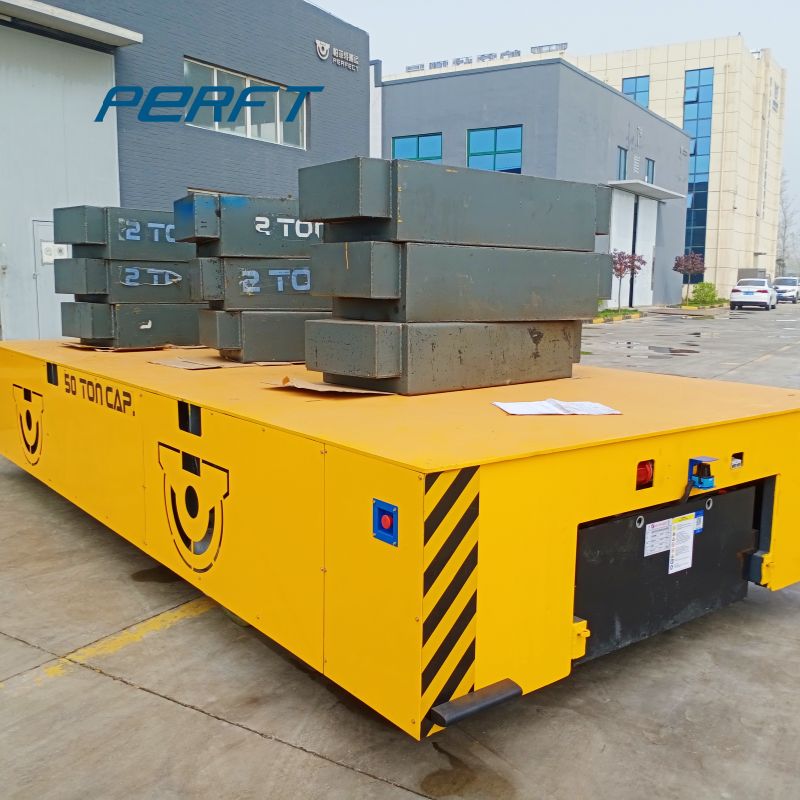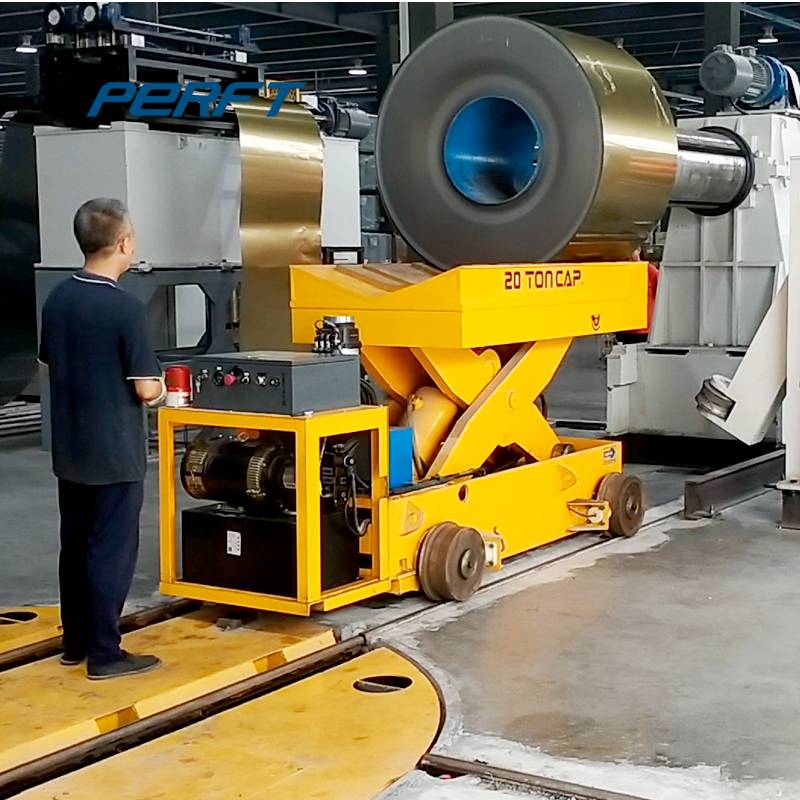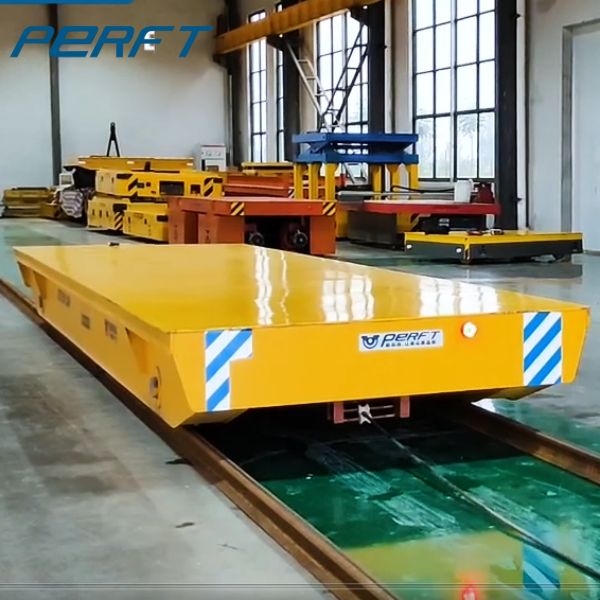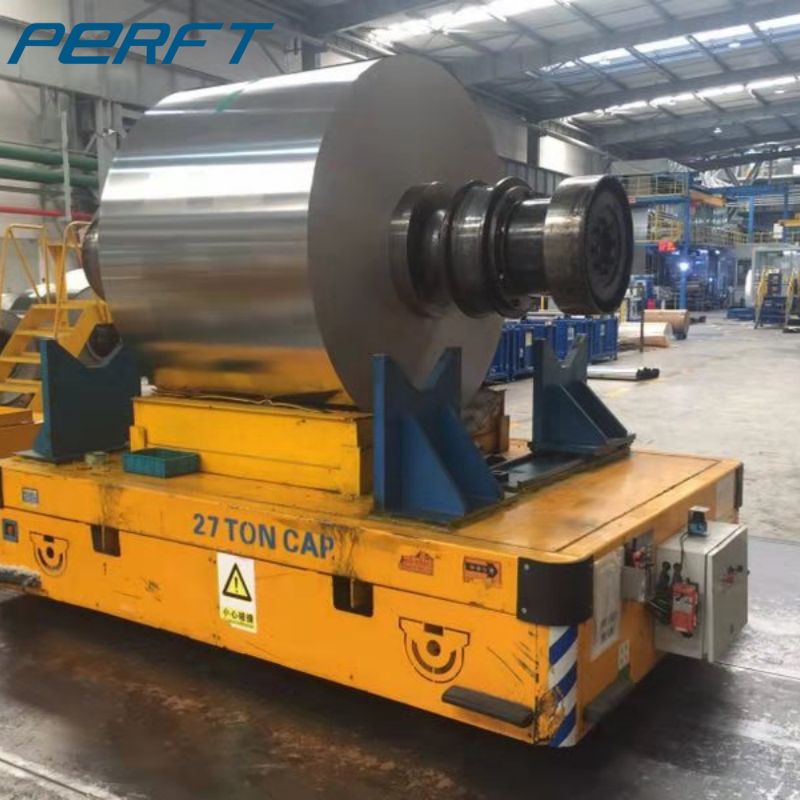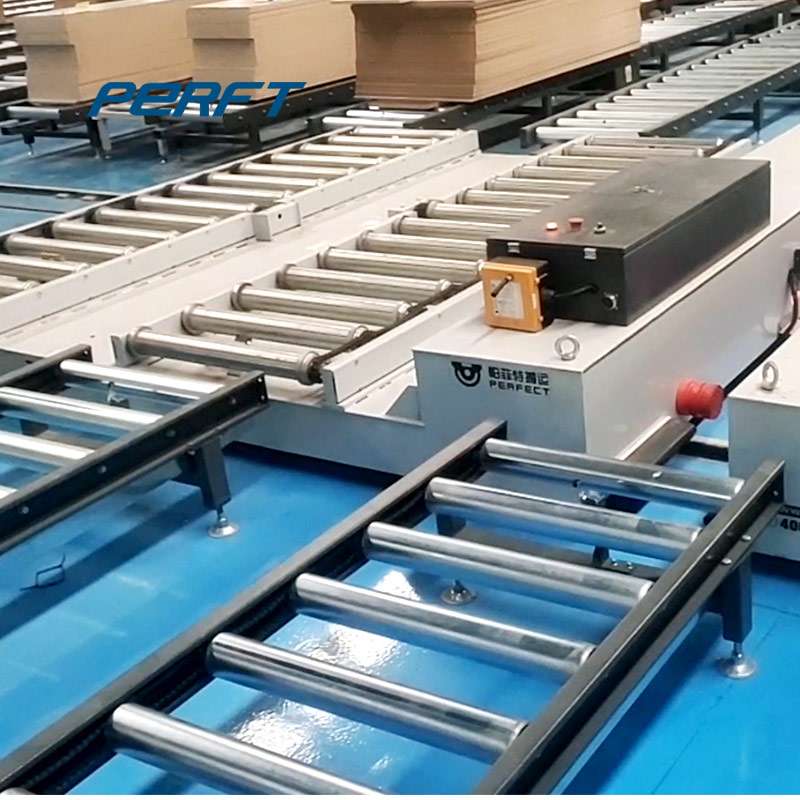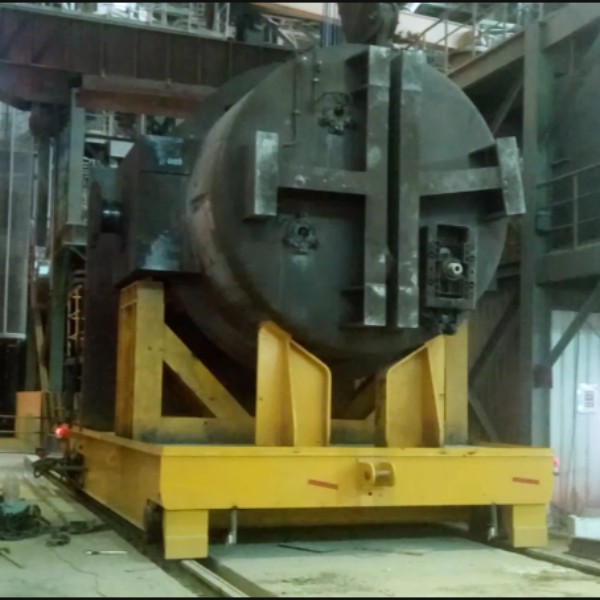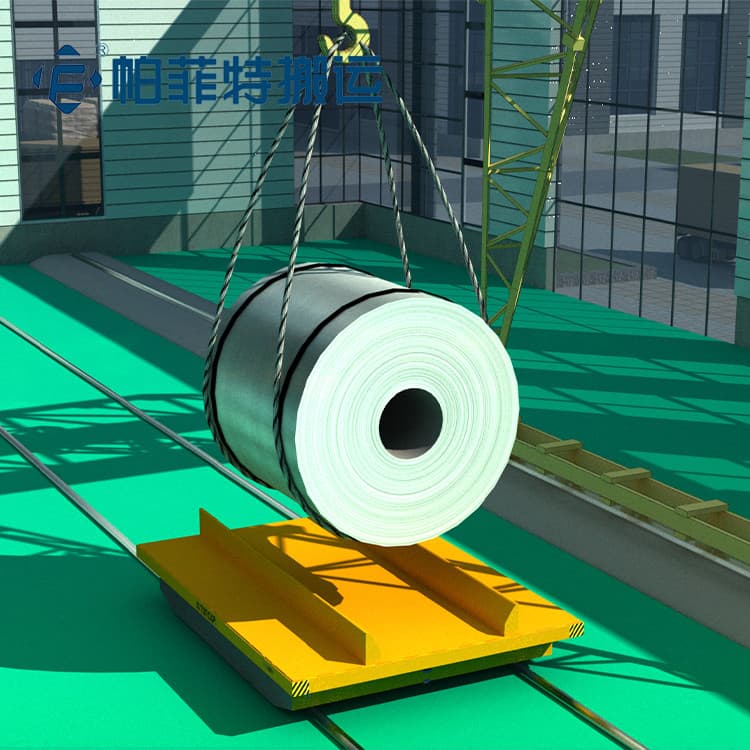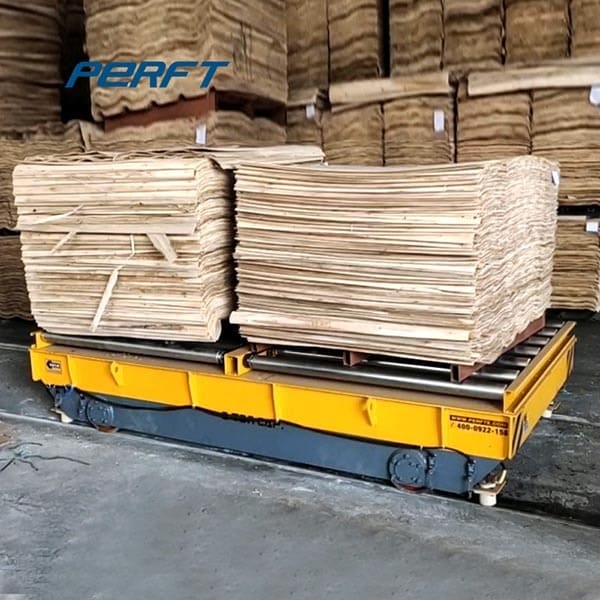Everything You Need to Know About Coil Transfer Cart Safety
Coil transfer carts, also called coil transfer trolleys or coil cars, play an important role in material handling in industrial environments, especially in the steel and manufacturing industries. These motorized carts are designed to transport heavy coils safely and efficiently, ensuring a smooth workflow in production facilities. This article delves into the various aspects of coil transfer cart safety in detail, covering key features and considerations that every user and operator should be aware of.
Types of Coil Transfer Carts
Electric coil rail transfer cart
Electric coil rail transfer carts are designed to move heavy coils along set rails. These carts are battery-driven to provide a smooth and controlled transport process. The electrification ensures the accuracy of operation and reduces the risk of accidents during transport.
Battery powered coil trackless transfer cart
Battery-powered coil trackless transfer carts are not restricted to fixed rails, allowing for flexible mobility. These carts are equipped with rechargeable batteries, providing mobility and adaptability to different work areas. This versatility enhances ease of use in dynamic industrial environments.
Cable reel coil transfer cart
Cable reel coil transfer carts are specifically designed for applications requiring a continuous power supply. These carts incorporate a cable reel mechanism to ensure uninterrupted power during material transfer. This feature is especially beneficial in processes that require a constant power supply.
Busbar power coil transfer cart
Busbar power coil transfer carts are innovative solutions for efficient and economical material handling. Explore their benefits in seamless coil transportation within industrial settings. Choose reliability with busbar-powered technology.
Low voltage rail power coil transfer cart
Low voltage rail power coil transfer cart is an industrial material handling solution designed to transport heavy coils. It utilizes a low-voltage rail power system to ensure the safe and controlled movement of materials within a manufacturing or processing facility. This innovative cart improves the operational efficiency and safety of the coil transport process.
Major Components and Functions of Coil Transfer Carts
Ensuring the safety of both personnel and materials is paramount when operating coil transfer carts. These carts are equipped with a variety of safety features to reduce potential risks.
Safety features
- Emergency stop button: immediately stops cart motion in the event of an emergency.
- Anti-collision sensor: detects obstacles and prevents collisions during transport.
- Audible alarm: alerts personnel and nearby workers in critical situations.
- Automatic braking system: Ensures a controlled and safe stop, even in the event of a sudden stop.
Load capacity and weight distribution
Coil transfer carts are designed with specific load capacities (1t up to 1500t). Adherence to these limits is critical to prevent overloading that could lead to accidents. In addition, proper weight distribution of the coils on the cart ensures stability during transport.
Operational safety
Although coil transfer carts are equipped with advanced safety features, proper operator training is essential to ensure accident-free operation.
Operator training
Operators must receive comprehensive training to understand
- Control operation
- Emergency procedures
- Load capacity guidelines
Regular training sessions and refresher courses should be conducted to keep operators up-to-date on the latest safety protocols.
Emergency response
In the event of an emergency, operators should be familiar with emergency procedures. This includes knowledge of emergency shutdown procedures, evacuation procedures, and communication methods.
Maintenance and Inspection of Coil Transfer Cart
Regular maintenance and inspections are essential to ensure the longevity and safety of coil transfer carts.
Routine maintenance
Routine inspections of wheels, brakes, and electrical components should be incorporated into the regular maintenance schedule. Any signs of wear or failure should be addressed immediately to prevent potential hazards.
Inspection
Periodic inspections by a qualified technician are necessary to identify and correct potential problems. This proactive approach helps prevent unexpected failures and ensures the continued reliability of the coil transfer cart.
Selecting the Right Coil Transfer Cart Supplier
Selecting a reliable coil transfer cart supplier is an important decision that directly affects the safety and efficiency of your material handling operation. The perfect transfer cart manufacturer is the better choice for you.
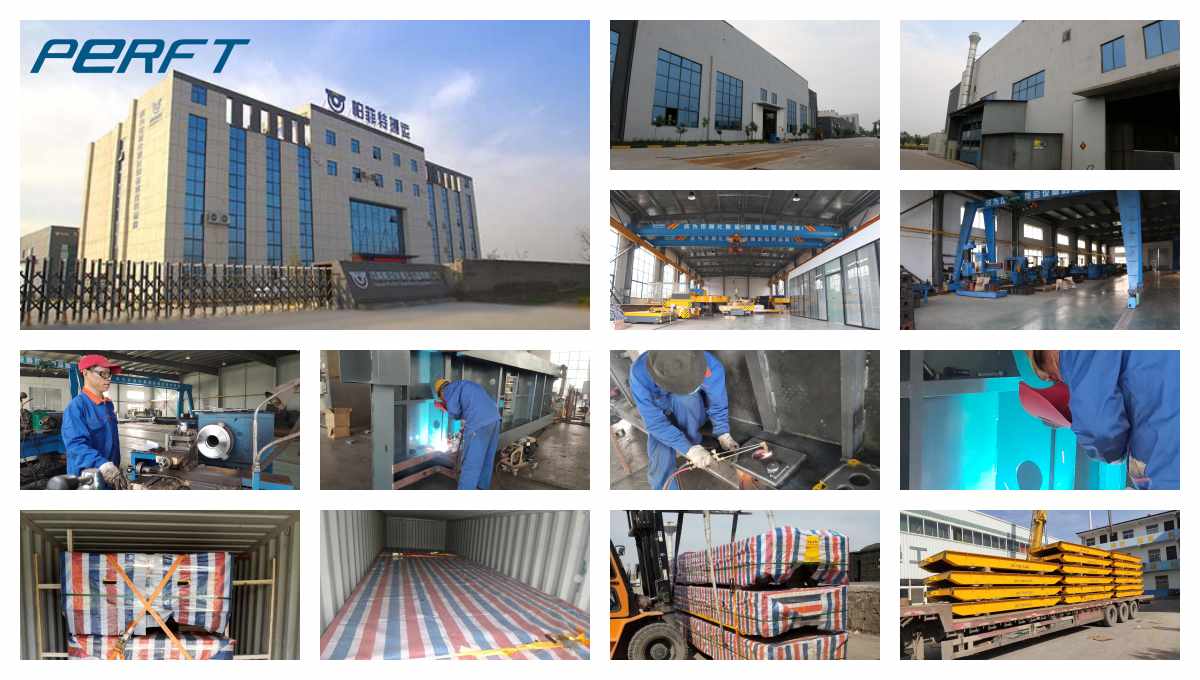
Our Services
- Industry standards: We are a supplier that adheres to industry standards and certifications.
- Comprehensive documentation: We are a trusted supplier that provides detailed documentation on safety features, operating guidelines, and maintenance procedures.
- Customer support: Fast access to customer support ensures timely assistance should problems arise.
- Industry standards and certifications: It is important to select suppliers that meet or exceed industry standards and have the relevant certifications. This will ensure that your coil transfer carts comply with safety regulations and are manufactured with quality in mind.
Coil transfer carts are an integral part of the material handling process in heavy coil handling industries. To prevent accidents and ensure a smooth production workflow, safety is paramount in cart operation and maintenance. By understanding features and safety measures and selecting a reliable supplier, you can improve workplace safety and coil transport efficiency. At Perfect, for coil handling equipment, we also have AGV and RGV optional. Do not hesitate, to contact us for your coil transfer cart, you can get an exclusive design sketch for coil handling solutions.
